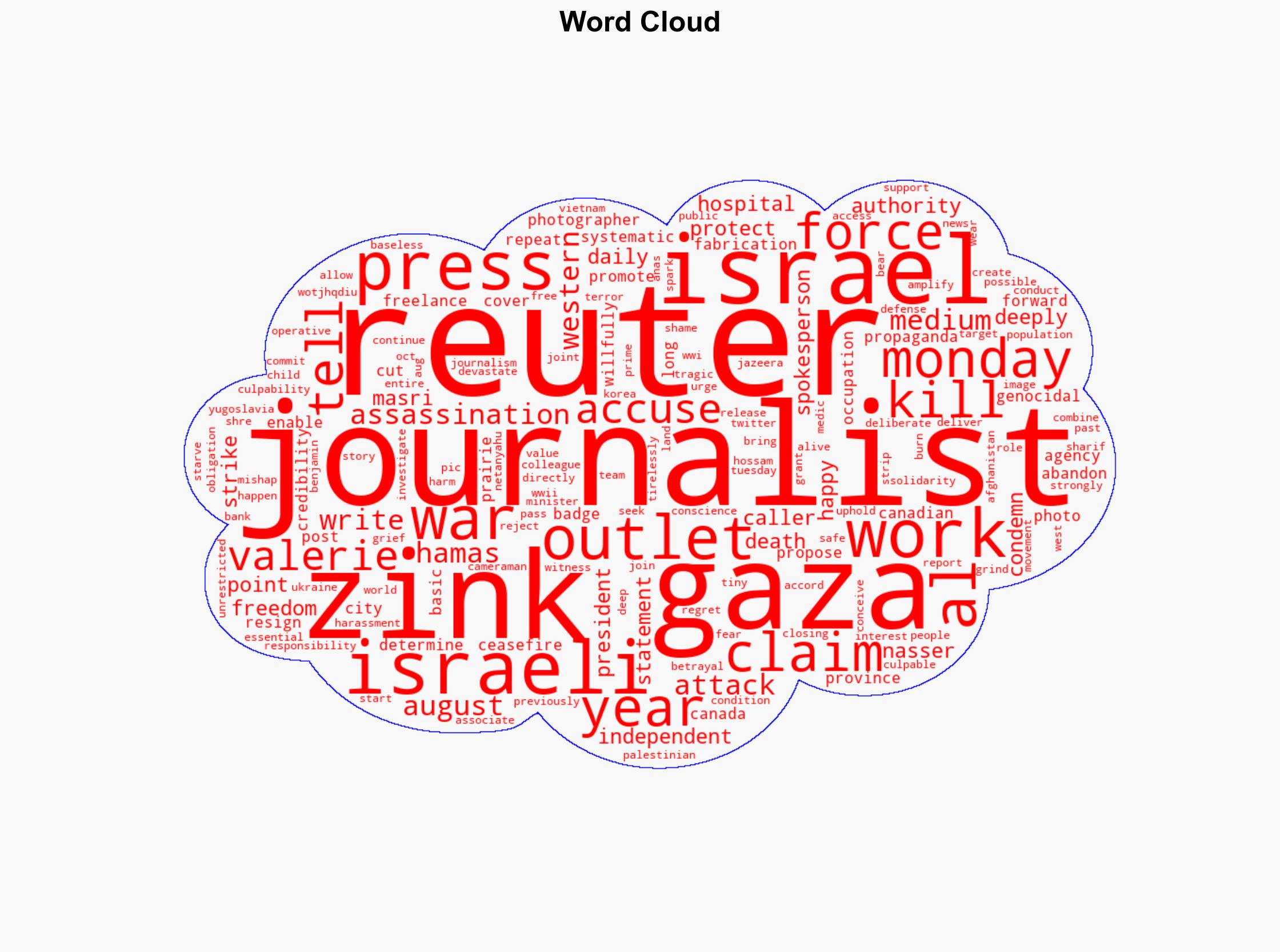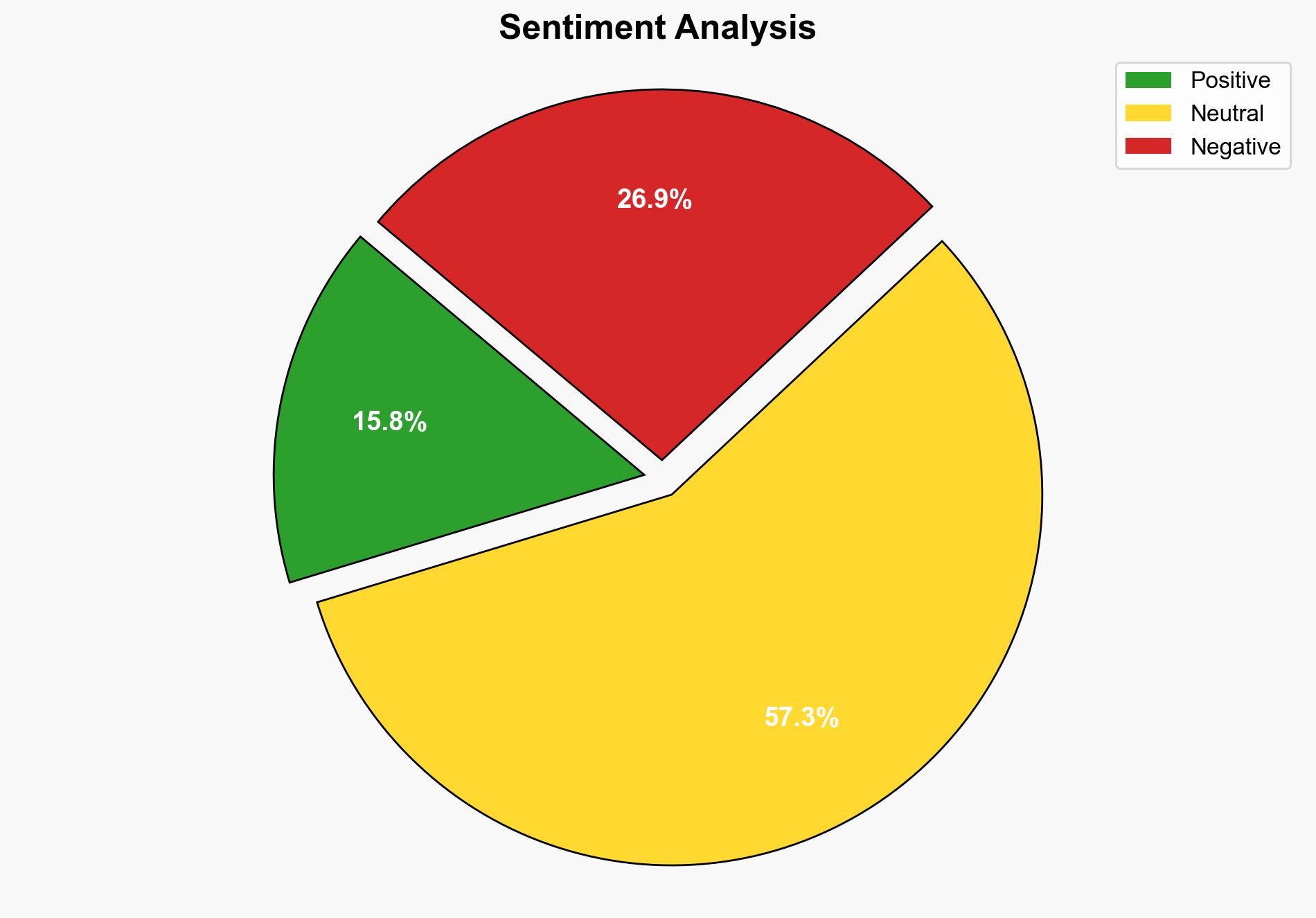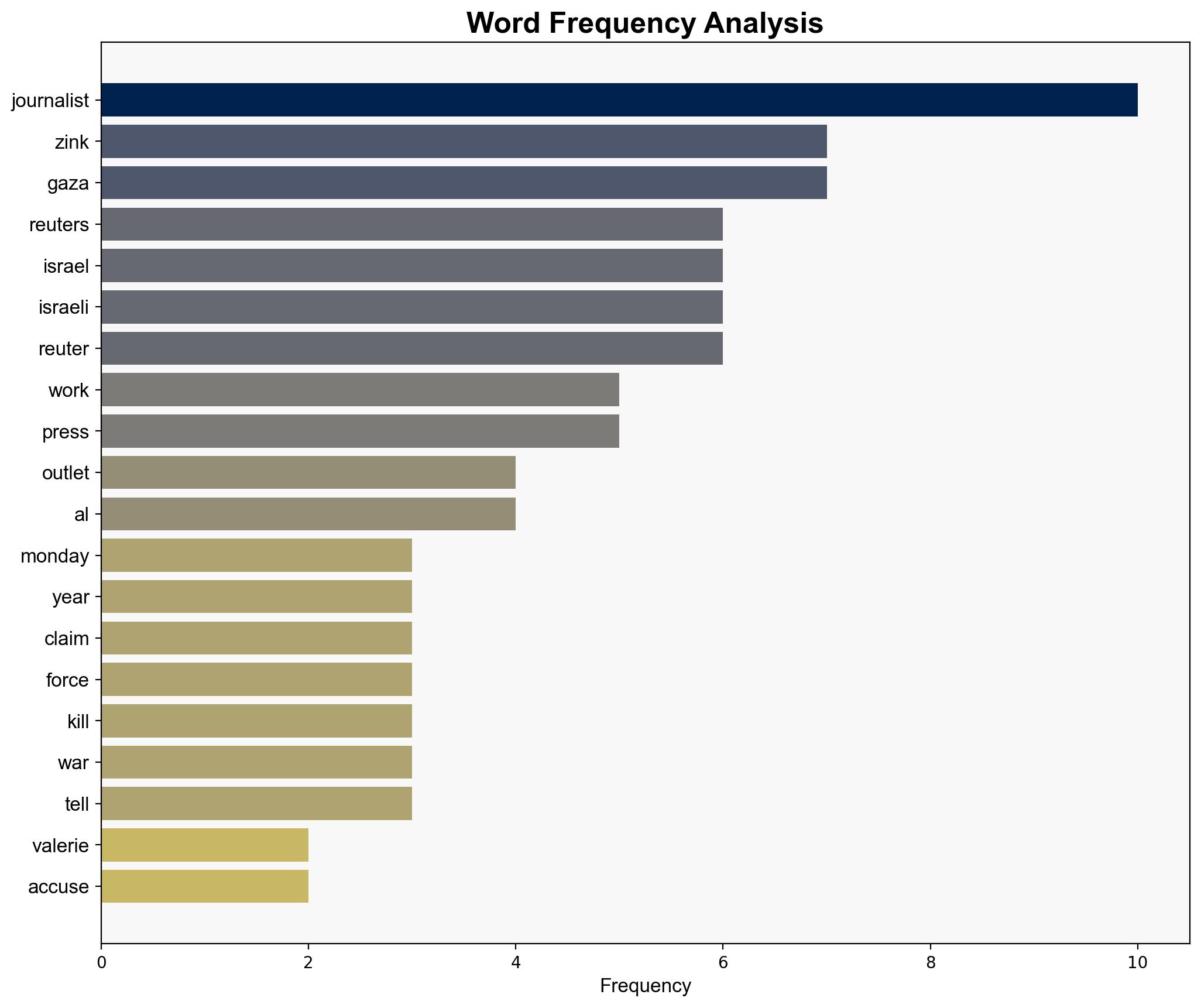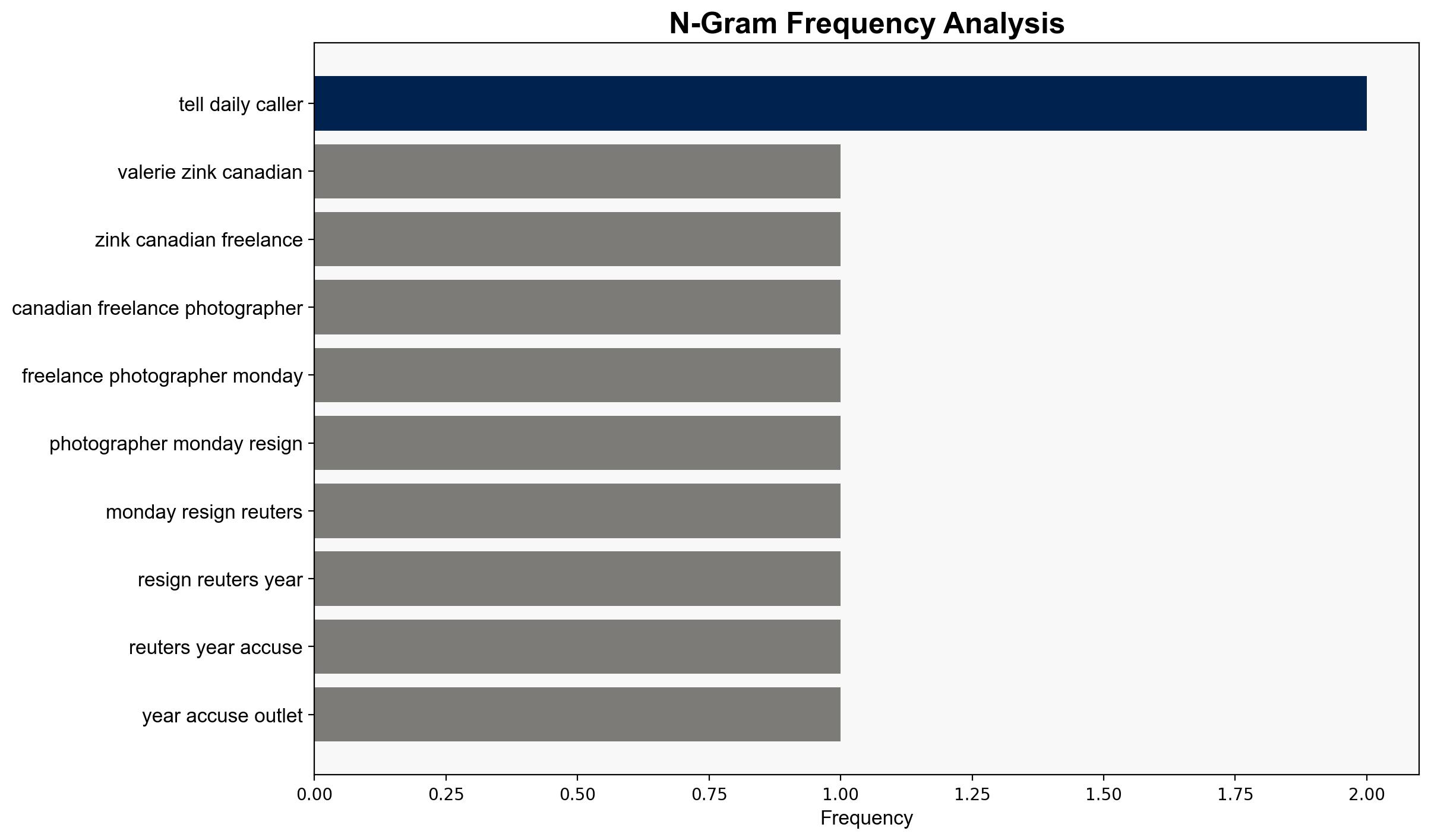Reuters Photographer Quits Job Cuts Up Press Badge Over Outlet Publishing Israeli Propaganda – The Daily Caller
Published on: 2025-08-26
Intelligence Report: Reuters Photographer Quits Job Cuts Up Press Badge Over Outlet Publishing Israeli Propaganda – The Daily Caller
1. BLUF (Bottom Line Up Front)
The most supported hypothesis is that Valerie Zink’s resignation from Reuters is a personal protest against perceived bias in media reporting on the Israeli-Palestinian conflict. The confidence level in this hypothesis is moderate due to the subjective nature of the claims and lack of corroborating evidence. It is recommended to monitor media narratives and public sentiment for shifts in perception regarding media bias and its impact on journalistic integrity.
2. Competing Hypotheses
1. **Hypothesis A**: Valerie Zink’s resignation is a principled stand against what she perceives as Reuters’ biased reporting favoring Israeli narratives, reflecting broader dissatisfaction among journalists with media coverage of the conflict.
2. **Hypothesis B**: Zink’s actions are primarily driven by personal grievances and ideological alignment with Palestinian solidarity movements, rather than an objective assessment of Reuters’ reporting practices.
Using the Analysis of Competing Hypotheses (ACH) 2.0, Hypothesis A is better supported by Zink’s public statements and her history of involvement in Palestinian solidarity movements. However, the lack of corroborative evidence from other journalists limits the confidence in this hypothesis.
3. Key Assumptions and Red Flags
– **Assumptions**: It is assumed that Zink’s statements accurately reflect her experiences and that there is a genuine perception of bias within Reuters.
– **Red Flags**: The absence of similar resignations or public statements from other Reuters journalists raises questions about the representativeness of Zink’s claims.
– **Blind Spots**: Potential internal Reuters communications or policies that could either support or refute Zink’s claims are not available.
4. Implications and Strategic Risks
– **Media Credibility**: If perceptions of bias in media reporting grow, it could undermine public trust in news outlets, impacting their influence and operational effectiveness.
– **Geopolitical Tensions**: Heightened scrutiny on media narratives could exacerbate tensions in the Israeli-Palestinian conflict, influencing international diplomatic efforts.
– **Journalistic Integrity**: This incident may prompt broader discussions on journalistic ethics and the role of media in conflict zones.
5. Recommendations and Outlook
- Monitor media narratives for shifts in public perception regarding bias, particularly in conflict reporting.
- Encourage transparency and accountability in media organizations to address potential biases.
- Scenario Projections:
- Best Case: Increased media transparency leads to improved public trust and more balanced reporting.
- Worst Case: Escalating perceptions of bias result in widespread distrust of media, complicating conflict resolution efforts.
- Most Likely: Incremental changes in media practices with ongoing debates about bias and integrity.
6. Key Individuals and Entities
– Valerie Zink
– Reuters
– Anas al-Sharif
– Hossam al-Masri
– Benjamin Netanyahu
– Donald Trump
7. Thematic Tags
national security threats, media bias, journalistic integrity, Israeli-Palestinian conflict





